The ancient forest in Malaysia’s Taman Negara National Park has long been an international tourist attraction, but lately some Batek families in the park have also been attracting visitors. A journalist writing for the Malaysian national news agency Bernama, Kisho Kumari Sucedaram, wrote an article last week about a press tour on February 23 that included the Batek village.
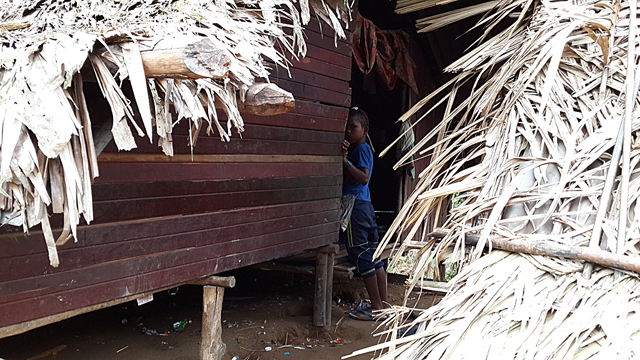
The author wrote that as soon as the tour group arrived at Kampung Dedari, which is the largest Batek settlement in the park, the women and children shyly disappeared into their huts, but the headman, Sena, spoke with the visitors. The news report indicated that about 1,000 Batek live in the park, some still moving about nomadically while others have settled into more permanent communities, such as Kampung Dedari. The Batek in that settlement are reached by boat from Kuala Tahan, a town to the south, outside the park boundary.
Coincidentally, a Malaysian blogger and novelist named Cleffairy visited the park and the same Batek village in January 2016. She published a piece in her blog that included 22 good photographs of the people and their village. Both accounts said virtually the same things—the Batek appear to emphasize similar points for their visitors. Fortunately, the blog has a Creative Commons license, so the story of the village can be retold based on the Bernama news report plus five of Cleffairy’s photos.
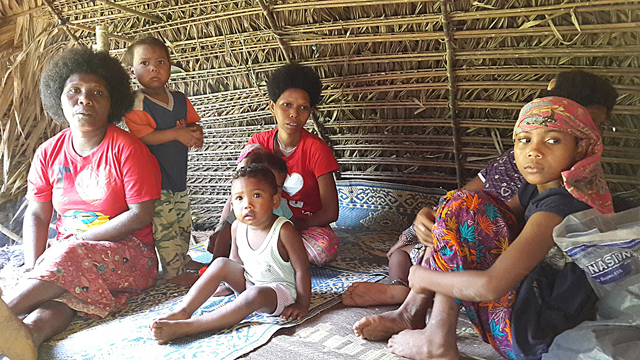
The Batek living in the park depend for food on small forest animals such as monkeys and squirrels, which are hunted with blowpipes, and such vegetables as yams and fruits. Their daily foods include shoots and herbs such as umbut and bayas, plus tubers such as ubi takup and ubi keluna.
Sena said that they retain their traditional religious beliefs in the spirits of the forest and the rivers, which they venerate. They also believe in using two stoves in their homes, one for cooking the animals hunted from the forest and the other for cooking meat purchased in stores. “It’s our belief that we would be struck by heavy rain and thunderstorm[s] if we use[d] the same stove to cook both kinds of meat,” he told the media people.
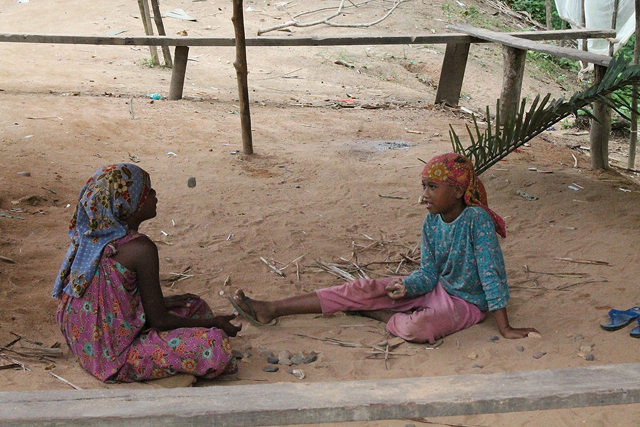
Sena told the tour group that none of the children attend school—they grow up learning from their parents how to fish, hunt, and gather fruits. According to the author, he said that “his community preferred to lead a simple and peaceful life, where the men go hunting and fishing while the womenfolk cook and look after the children.”
He said that when the people go out by boat to the nearest town to buy food or supplies, they are frequently cheated by the merchants, who will refuse to return change for a purchase they have made.
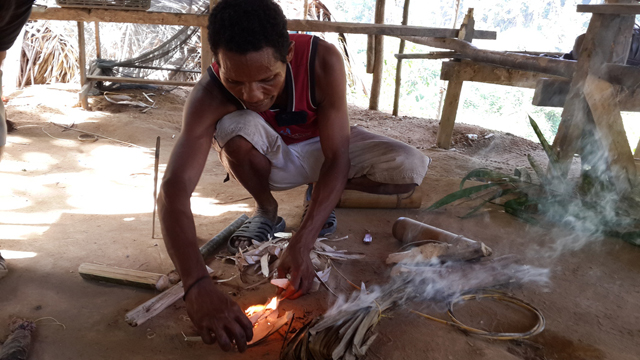
He did tell the journalists that tourists started visiting the village a couple years ago, which has provided the opportunity for the Batek to earn money by demonstrating such traditional skills as using a blowpipe or starting fires without matches. The women make necklaces and bangles out of bamboo and rattan to sell to the tourists. The community uses the money to buy meat and rice, and for welfare in the village.
Dam, a 43-year old man living in the same settlement, told the group about their marriage practices. He said that in order to become married, a man needs to have demonstrated his ability as a hunter. Each time he successfully kills an animal, his blowpipe is marked with a line. A young man with a well-carved blowpipe is clearly ready to be married.
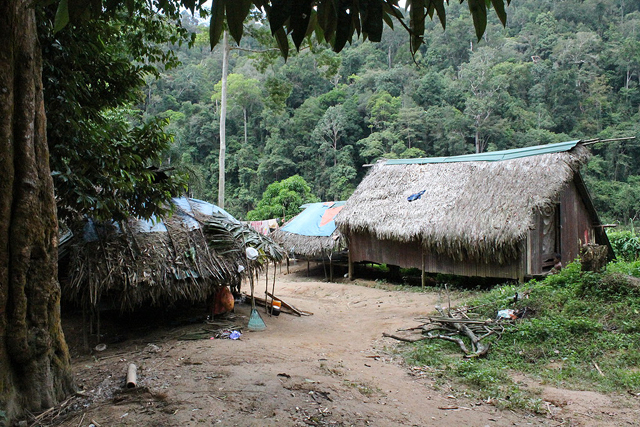
Normally a couple spends a night together in a house before being married. If either of the partners is gone before dawn, the marriage ceremony will be cancelled. Dam added that this practice confirms their love for one another; after they are married, the Batek are quite loyal to their partners. They will not remarry if their spouses die, he said.